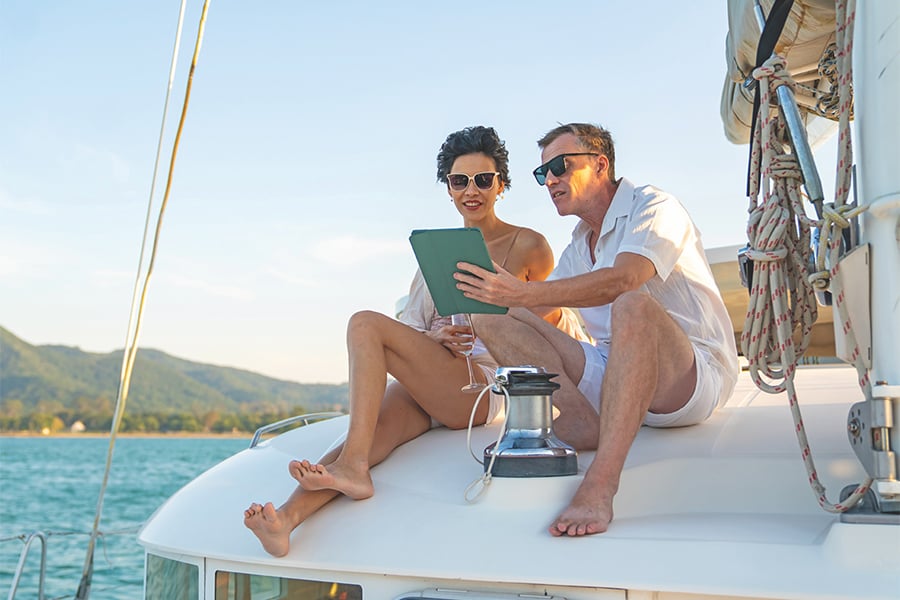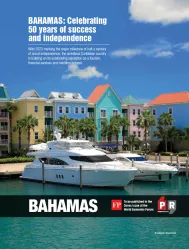ActivTrades blazes a trail for cutting-edge online trading services
In a little more than two decades, the boutique trading company has grown significantly through a focus on innovation and strong emphasis on customer support

ActivTrades has an outstanding reputation for delivering first-class trading climate.
Founded shortly after the start of the new millennium, ActivTrades is considered a pioneer in online trading. The award-winning global organization started off specializing in Forex, but has since expanded into exchange traded products (ETF), commodities, shares and Indices Contract for Differences (CFD). The firm’s Chief Commercial Officer, Chris Illing, tells us more about its operations.
PR: Please give us a brief overview of ActivTrades and some main facts and figures to educate us about your operations?
CI: The company was founded by Alex Pusco in 2001 in Switzerland, then shortly afterward migrated to London where headquarters were set up and then went on to be an online broker who offered CFD products and since 2001, they have been constantly growing. We have a worldwide client base and are now a regulated and licensed broker in the U.K., Portugal, Luxembourg, the Bahamas and Brazil.

PR: Can you tell us about the company’s growth and evolution, particularly in the context of the past two to three years?
CI: Forex was a starting point, and it is still the main product of our platform. We offer three trading platforms where we offer very competitive pricing to our clients and within the Forex community, there is a lot of competition, so we try to be different by giving really good customer support, multilingul accessibility around the clock, and very competitive spreads for the active trader. We recognize that besides the Forex market, we had to expand and offer our clients, because the demand was there, trading within the commodities market, the indexes, in general. We offer individual shares as well as ETFs and within the last two years, we were able to through some partnerships. Nowadays, cryptocurrencies belong to that as well, to some certain percentage, so we definitely have our eyes on that and we are expanding in that market.
PR: The pandemic changed how retail investors interacted with trading markets. Do you expect these new trends to continue, and what do you see as the main trends moving forward?
CI: Thanks to technology and good bandwidth, all our staff were able to work from home during the pandemic, with maybe one or two key people in the office. There was definitely a shift in trading preferences for the retail clients. They had a little bit more expendable income due to the lack of going out, traveling, other expenses and the markets became a little bit more volatile, interesting for the avid trader and our clients took advantage of it and became more active. There was a lot of word of mouth that our support didn’t break down, we continued to offer very competitive pricing during the pandemic and everything, thanks to our IT department, was almost a seamless transition from in-office to working from home. We see that trend continuing after the pandemic. The retail trades are definitely going with the ease of access to those trading platforms, that is why we offer three different trading platforms, so the connectivity never stops. You can trade 24/7, if your heart desires.
PR: In addition to the Digital Assets and Registered Exchanges (DARE) Act of 2020, what other regulatory reforms should international investors know about?
CI: DARE was a landmark act. The Bahamas was very early interested in introducing and more importantly regulating digital currencies. As a broker, it gave us the legitimacy to offer cryptocurrencies to our clients. We got the permission from the Securities Commission of The Bahamas to offer our clients the crypto assets which is important since the crypto world still has its challenges, so we want to make sure that we give our clients the most regulated possibility to trade those digital assets so that’s why it was a benefit to be stationed in the Bahamas once they introduced the DARE Act.
PR: What is the significance of the Bahamas as a base of operations for ActivTrades and what are the advantages to operating within the country?
CI: In 2018, the E.U. introduced some restrictions to the retail traders regarding leveraged products. That is when the company started looking for an offshore jurisdiction and picked the Bahamas due to the ease of access from the U.K. and the ease of access from the Bahamas to Central and South American markets. We are pretty much in the same time zone. There are flights directly from Nassau to Panama and from there on further south. That was important for us because we saw the Central and South American market as a growth market for us. On a proportional level, most of our new clients come from that part of the world and it was just a great hub between Europe and South America. We always differentiated between onshore and offshore jurisdictions and the Bahamas is in between onshore and offshore because within 25 minutes you are in Miami, so we are not offshore anymore. We are very well regulated. We have with the Securities Commission a partner who prefers an open dialogue. If we have suggestions regarding the financial institutions, they are willing to listen and implement changes if they make sense and benefit the broader financial sector. Then additionally, the introduction of the DARE Act was an added benefit.
PR: What is your final message to readers of Foreign Policy?
CI: We hope for a light at the end of the tunnel once the pandemic and the difficult geopolitical times end. We hope retail traders, the man and woman in the street, still have faith in the advantages of taking part in global market transactions and don’t lose their shirts, but keep the faith, and the firms progressing our industry are worth investing in.
Report Contents:

 Download the PDF
Download the PDF